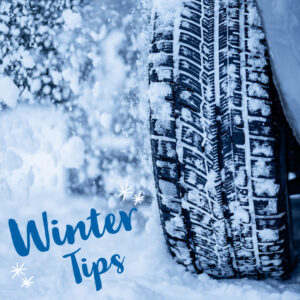 We have gathered the best winter tips over the last several years and put them all in one place. These tips are not only for your home but also while you are traveling. Let’s dig in!
We have gathered the best winter tips over the last several years and put them all in one place. These tips are not only for your home but also while you are traveling. Let’s dig in!
There’s ‘snow’ place like home:
- Ceiling fans are not just for summer. Flip the switch on the fan to reverse the direction clockwise. This will create an updraft and circulate warm air around the room.
- Use energy from the sun. During the day, open drapes and blinds to allow sunlight to help warm the house, and then close them at night to contain the heat.
- Protect your well from getting damaged by snow blowers and plows. Don’t pile anything around your well, including snow, and consider adding a fiberglass driveway marker to help with locating the well.
- Got ice? Alfalfa meal is an eco-friendly salt alternative. It’s 100% organic so it’s less of a threat to local water systems when used in moderation. Plus, not everyone can constantly shovel during a snowstorm! Just remember to use it sparingly.
- Winterize your pipes. Preventing leaks and your pipes from bursting is a great way to conserve water in winter. You should make sure outdoor pipes, like the ones running to your backyard spigot, are wrapped to prevent freezing. You can wrap them with a pipe sleeve or electrical heat tape. If you need assistance, contact your local plumber.
- Insulate hot water pipes. Ever notice that it takes your shower longer to get hot when it’s freezing out? That’s because your pipes are colder. Just like your outdoor pipes, you should wrap your hot water pipes. Not only does this help the hot water stay hot, but it helps protect these pipes from the cold, which can cause leaks. Again, if you need assistance, contact your local plumber.
- Catch the water. Since it takes longer for your shower to heat up in winter, catch that cold water and use it to water plants. You can use this tip year-round.
- Save your skin. Skip the long, hot showers, which can dry out the skin. Try taking a lukewarm shower, for a shorter duration and save water.
- Check for leaks. Temperature changes from night to day cause pipes to expand and contract. This constant change adds more stress to your pipes and can lead to a leak over the winter. Contact your local plumber to check your pipes for leaks.
- When in doubt drip your faucets. Leave faucets dripping slightly overnight in extremely cold weather (below 32°). This slight trickle allows constant movement of the water which will prevent freezing. Remember more water is wasted from a leaky pipe than from using this tip! You can still save the water you are dripping; just place a bucket or large pot under the faucet. You can use that water to flush the toilet in a power outage or water plants.
- Know where the shut-off valve is. Despite your efforts, sometimes a pipe will still burst in the winter. The faster you can turn off the water, less will go to waste. Most likely you will find the shut-off valve near your pressure tank if it is located inside your home. It looks like a regular spigot and it turns off all the water in your house. It will help save hundreds of gallons while you are waiting for your plumber to arrive.
If you are ever in doubt about your well or household plumbing contact your well contractor or plumber for assistance.
The weather outside is frightful – travel tips:
- Pack an extra pair of socks in your car’s glove compartment. Then if you need to get out and shovel, or if you step into a puddle, you’ll have dry socks to change into. And put those mismatched socks to use and use them as wiper blade covers!
- Dress in layers while watching TV or working from home, you may be able to keep the heat at a minimum during certain times of the day.
- Keep a bag of clay kitty litter in your car’s trunk. If your car gets stuck in deep snow or slick ice, sprinkling kitty litter (non-clumping) at the base of your tires can be just the thing to add some traction and get things moving again. The extra weight in your trunk will also create added pressure on your tires, ensuring greater contact between your tread and the ground.
- Fill a clean spray bottle with 1 part water and 2 parts rubbing alcohol and store it in your car during the cold weather months for an easy deicer. Spray it on your frosted windshield and windows on those chilly mornings to make scraping easier.
- During cold weather months, it’s a good practice to keep at least half a tank of gasoline in your vehicle at all times. Not only does it prevent you from being stranded, but it prevents any water in the tank from freezing, which can damage the fuel pump.
- Place plastic bags over your car mirrors at night and they’ll be frost-free in the morning. Reuse them over and over.
- Your car’s floor mats can help you get unstuck from snowy or muddy conditions. Place your front floor mats under the spinning tire to give you some traction.
- Frozen locks? Squirt a little hand sanitizer on them. The isopropyl alcohol that kills germs also lowers the freezing point of water and can melt the ice inside the lock within seconds.
- A plastic card, such as an old gift card from your wallet, can work as an ice scraper in a pinch.
- Keep a roll of duct tape in the car. Not only does it fix everything, but you can use it as a fire starter — duct tape is very flammable and is a great tool to get a fire going in an emergency.
